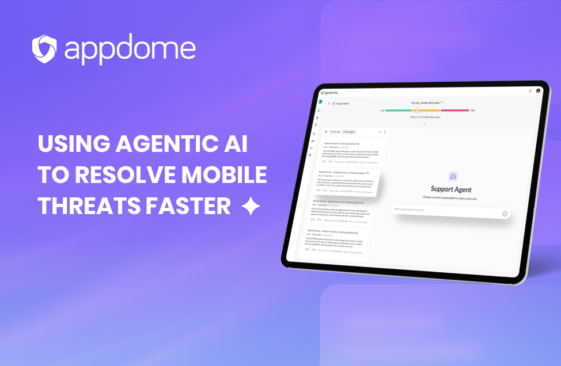In 2021 worldwide mobile retail revenues are expected to be well over $3.5B, tripling in just 5 years. In addition, fraud is estimated to cost the average retailer 1.86% of their total revenue, with mobile fraud growing 133% faster than all other forms of fraud. If you add the cost of a breach, weak mobile app security and mobile fraud cost the global mobile retail economy well over $100M per year.
Top Threat to Mobile Retail Apps
Top threats to mobile retail apps include click fraud, ad fraud, sneaker bots and scalper bots. Why are retail apps targets for fraudsters and hackers?
- Retailers, like other app makers, are under pressure to deliver new features. More three-quarters (76%) of developers felt pressure to deliver apps on time and within budget, according to The Verizon Mobile Security Index 2021.
- While most mobile apps contain some security protections, they unfortunately can be quickly bypassed by fraudsters abusing widely-used developer tools. The abuse of tools like Magisk enable fraudsters to root Android phones, giving them much higher privileges. While many apps contain some form of rooting protection, which shut the app down as soon as it detects it’s operating on a rooted phone, Magisk can evade many of the most popular protections.
- It’s difficult to incorporate defenses such as anti-rooting and anti-jailbreaking, code obfuscation to stop reverse engineering and encryption. Obfuscate the wrong code or encrypt the wrong data, and an app will break. Compounding the problem, the skills to implement these security measures are in short supply, and implementation takes a lot of time. The mobile app market is extremely competitive, and those apps that can’t keep up with others’ functionality and feature sets will see their adoption rates plummet.
There are alternatives to manual implementation of mobile app security. Software development kits (SDKs) provide ready-to-implement code for key security features. They’re easier and faster to incorporate than manually developing security capabilities in-house. Nevertheless, they still require a certain level of mobile platform-specific security skills to weave into an app’s code. For example, a vendor may provide more than one SDK, each covering a specific framework. Each SDK is likely to have several variants for different operating systems, programming languages, and development frameworks (e.g. Maui, Xamarin, Cordova, React Native). For a mobile developer, integrating a single SDK into source code can be a lot of work, let alone multiple SDKs. Imagine having to integrate multiple SDKs across versions, frameworks, operating systems and the like. On top that complexity, the SDKs themselves may be compromised or provide insufficient protection.
Making Retail Mobile Apps DevSecOps Ready
Protecting retails apps is not something to do just before release. It needs to part of DevSecOps, or how organizations release security into new Android and iOS apps on a regular basis. Through DevSecOps, organizations don’t have to make tradeoffs between releasing new features and having security. They can have both because each group, whether it’s development, operations or security are coordinated in one continuous workflow.
- With Appdome, organizations can address the complexities of protecting from hackers that other solutions don’t offer. Beyond basic mobile app security and app shielding, Appdome provides different ways to responding to threats. First, you can shut down the app upon a security compromise. Second, you can notify the user or admin when a security compromise has been detected. Furthermore, with hackers ever evolving, the attack surfaces ever expanding, addressing the threat from external forces can be daunting. Appdome has the expertise and focus on the latest fraud and hacking methods to protect your apps now and in the future.
- With Appdome, organizations can automate the process of protecting from hackers and fraudsters Instead of waiting until the end of app development, you can code in mobile app security and prevention at any time in your development process with a few simple clicks. No need to code. No SDK.
- With Appdome, organizations are using security best practices in a workflow used by the largest companies in the world with hundreds of releases each year. This workflow is so flexible that enables disparate, global dev, security ops teams to work together in a coordinated way that releases secure apps on time.
To embrace DevSecOps and effectively protect retail mobile apps, the entire organization must adhere to new, rapid release processes that meld the different disciplines, development, security and operations, into one continuous workflow. In the new DevSecOps workflow, it is critical that (a) actions be held by the group most capable of completing them, and (b) each group is accountable, transparent and, for its part, deliver with certainty in the release process. Appdome comprehensively protects mobile retail apps at the same time it enables each group in the organization to deliver its part with certainty in the release process.
To see Appdome’s mobile retail app security in action, click here for a demonstration.






